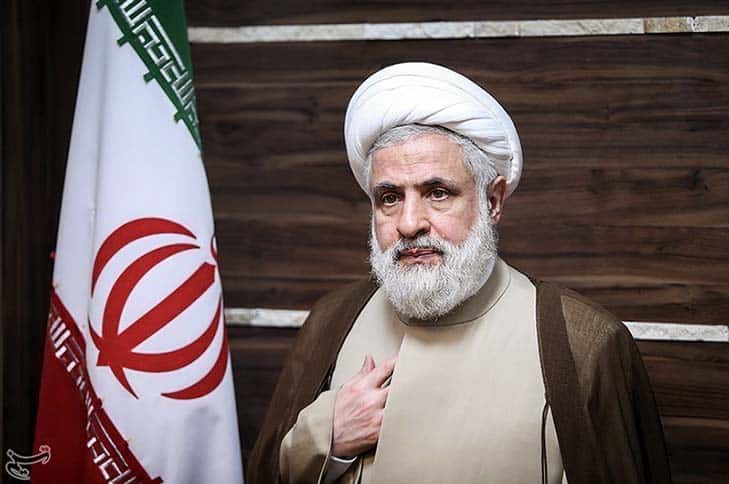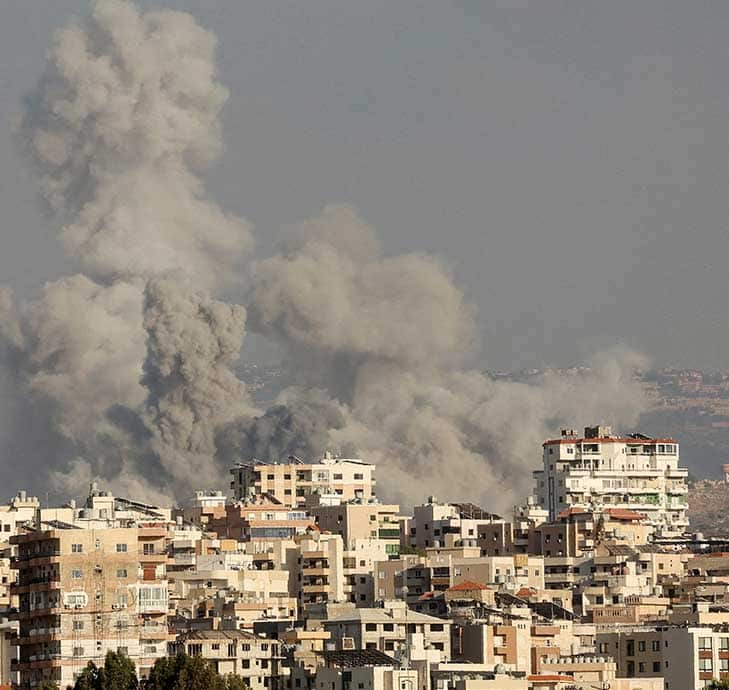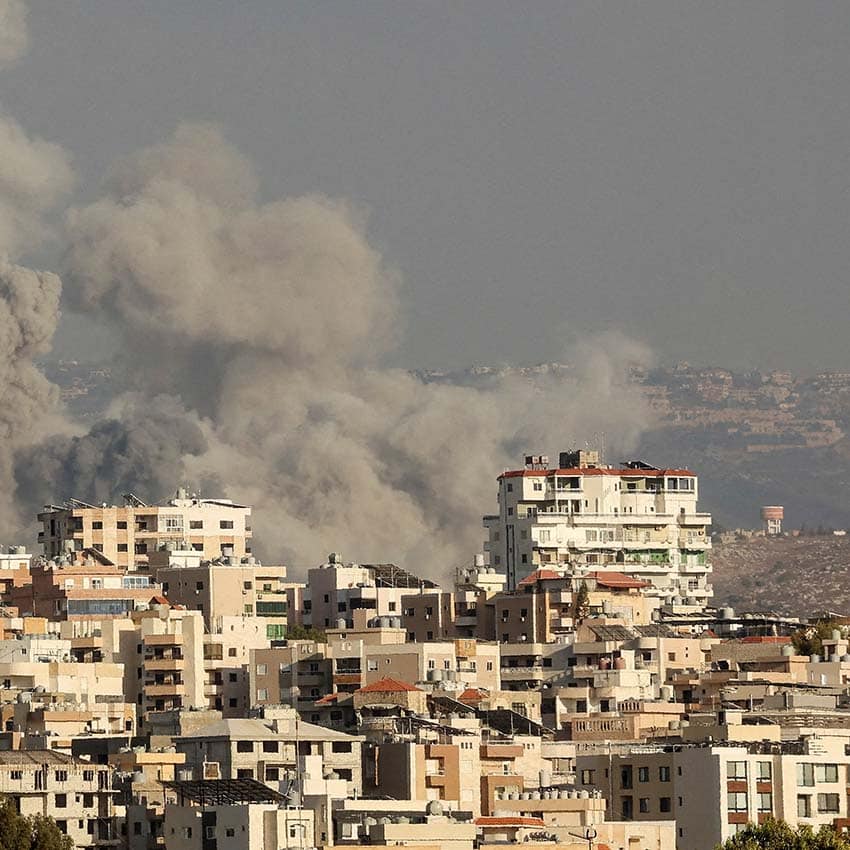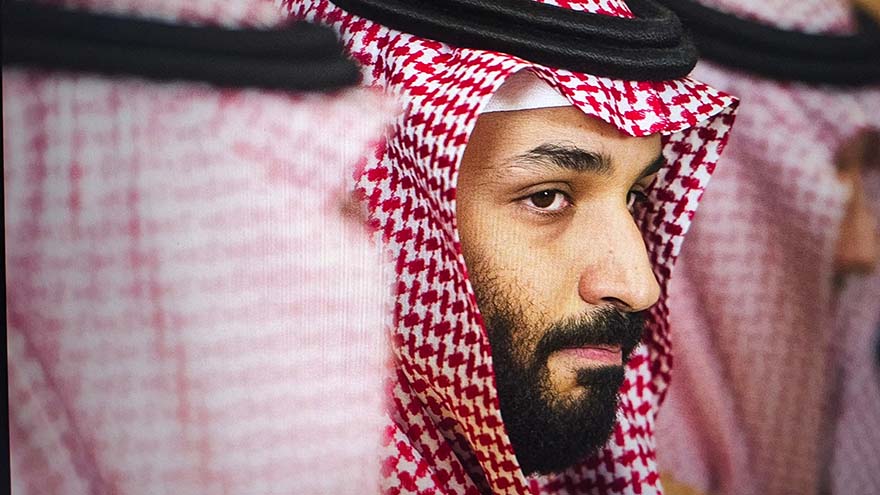During September and October 2024, Israel managed to deliver a series of severe blows to Hezbollah that significantly weakened the organization. About a month later, on November 27, the ceasefire in the north came into effect. In the spirit of understanding with the United States, Israel has consistently and decisively worked to thwart Hezbollah’s efforts to rebuild itself and grow stronger, and to shape new rules of the game with a dual purpose.
One purpose is to refine and improve intelligence superiority and operational capabilities to foil Hezbollah’s rehabilitation efforts and shape a security reality that will neutralize the threat it poses in its current form, as we knew it until late 2024. The second purpose is to disrupt Iran’s ability to wear Israel down through its long arm in Lebanon, by systematically and continuously weakening the organization.
Israel has two partners in this effort, each for its own reasons: the first is Lebanon, whose president and government want Hezbollah disarmed and politically weakened in the domestic arena. The second is Syria, which acts against it by systematically thwarting remnants of the organization’s infrastructure within its borders, preventing attempts to smuggle weapons from Syria into Lebanon, and even striking Hezbollah forces on the border between the two countries. In Damascus, Hezbollah and its patron in Tehran are identified as a threat, and efforts are made to prevent any Iranian influence or any attempt to help Iran establish capabilities and infrastructure against Israel on Syrian territory.
Despite the severe damage Israel inflicted on the organization’s infrastructure and capabilities, as well as on its military and political command chain, Hezbollah still retains the ability to strike at it both from Lebanese territory and at Israeli and Jewish targets abroad.
Hassan Nasrallah’s place in the leadership was taken by Naim Qassem — a pale man, lacking charisma and, above all, the experience that his predecessor had. But even if he finds it challenging to fill Nasrallah’s shoes, and even though many of the organization’s senior and capable commanders were eliminated by Israel and he remains, from an intelligence perspective, almost invisible, Hezbollah — humiliated and fueled by vengeance — has not lost its determination. Iran has not lost hope that it can once again activate it as before.
Iran’s last chance
Since the ceasefire, Hezbollah has been trying to restore its capabilities, rebuild command-and-control systems, locate all intelligence gaps, and placate the Shia population in Lebanon — its source of strength in the country — which was severely affected by the war; many lost their homes, were uprooted, and live as displaced persons. The organization is also attempting to rehabilitate its political standing in the country and counter the efforts of the president and the prime minister next to him to weaken it. Iran, for its part, continues its efforts to strengthen Hezbollah and revive its former days.
After losing Hamas and the Palestinian Islamic Jihad, after the severe blows Israel dealt the Houthis in Yemen and especially after the hit to Iran itself in Operation “Am Kalbi,” Hezbollah remained Iran’s last chance to restore its regional standing and rebuild deterrence vis-à-vis Israel, as well as to increase its capacity for harm in case Israel attacks it or decides on its own initiative to attack.
But Iran’s efforts to assist in the rehabilitation process face significant difficulties. Its ability to smuggle weapons and components for missile production and other precision arms into Lebanon via Syria was severely harmed due to the change that occurred after the fall of the Assad regime, and against the backdrop of the counter-efforts of the new regime headed by Ahmad al-Sharaa. At the same time, Israel is also working to thwart these efforts both on Syrian soil and in Lebanon. Last October, the Israeli Air Force bombed a fortified facility dug into a mountain in the Beqaa Valley that the Iranians had prepared as a secret and protected base for missile storage and launch. Iran’s attempts to use civilian aircraft to smuggle weapons and money for Hezbollah are also not going well, and many of the attempts are foiled by Lebanon, with it likely that part of the intelligence that assists in this comes from Israel — either directly or via the Americans.

Freedom of action against any resurgence
As noted, Israel, Syria, and Lebanon share a common interest in weakening Hezbollah to the point of dismantling its capabilities. Yet Russia’s attempt to reassert itself in Syria as an influential actor, alongside Iran’s tireless efforts to restore its capabilities—primarily by deepening cooperation with Shia militias in Iraq and consolidating its presence and capabilities there—could disrupt the efforts of Israel and its partners. For the moment, the three find ways to act in coordination toward the same goal, and this cooperation is supported and encouraged by the United States, which has become an important pillar, alongside France and Saudi Arabia, for the president and government of Lebanon.
The critical statements by the presidents of Lebanon and Syria toward Israel over its actions on their territory should be understood as lip service, since these actions necessarily serve vital, even existential, interests of those states. Indeed, this cooperation in turn lays the essential groundwork for deepening ties between Syria, Lebanon, and Israel and creates more favorable conditions for their possible accession to the Abraham Accords in the future, in the spirit of President Trump’s vision—even if that does not happen in a single step, but rather gradually and perhaps over a relatively long period.
In light of the lessons of October 7, it is clear to Israel that what existed in Lebanon cannot continue. The rules of the game have changed; Israel is no longer willing to tolerate Hezbollah’s efforts to grow stronger and takes its intentions and declarations very seriously, even while the organization remains weakened. Indeed, over the past year, since the ceasefire came into effect, the IDF has maintained a military presence in southern Lebanon at five positions along the border, with Israel retaining complete operational freedom of action against any Hezbollah attempt to rearm that it identifies as a violation of the agreement signed. Israel ensures that the area of southern Lebanon adjacent to the border remains depopulated; the Shia villages and towns remain deserted, and residents are not permitted to return there.
Establishing the model of determination against Hezbollah also in Gaza
From Israel’s perspective, the model of action taking shape and consolidating in Lebanon should become a conceptual and principled model to be applied in any current or future theater of conflict, with primary attention directed to the Gaza Strip.
Because Hezbollah does not accept the reality that remains, nor does its patron Iran. Because the organization was humiliated to the ground after suffering heavy and painful blows and found itself completely exposed and penetrated by Israeli intelligence, the reasonable working assumption is that its personnel will seek to restore its standing and honor and that its patron will do everything within its power to assist it.
For Israel, this means determination, persistence, and vigilance. It is indeed preparing for an escalation and renewal of fighting against Hezbollah. Still, if that happens and the organization is tempted to believe it can change the new equation that has been created, it will face a trained, experienced, well-equipped army that is, above all, prepared and freed from parallel large-scale commitments, as it was in the Gaza Strip.
It seems that today’s Israel prefers to continue shaping the new security reality in a measured and consistent way without sharp escalations. Still, if such a reality is forced upon it, the first war objective defined will likely be the elimination of Hezbollah. It can be assumed that it will also find partners for that goal, who will see it as an opportunity to complete a desirable and necessary process from their standpoint. The same logic and assumptions should be applied to Hamas in the Gaza Strip, hence the necessity for Israel to adhere strictly to the new rules of the game and to consolidate the understandings with the United States regarding them.








